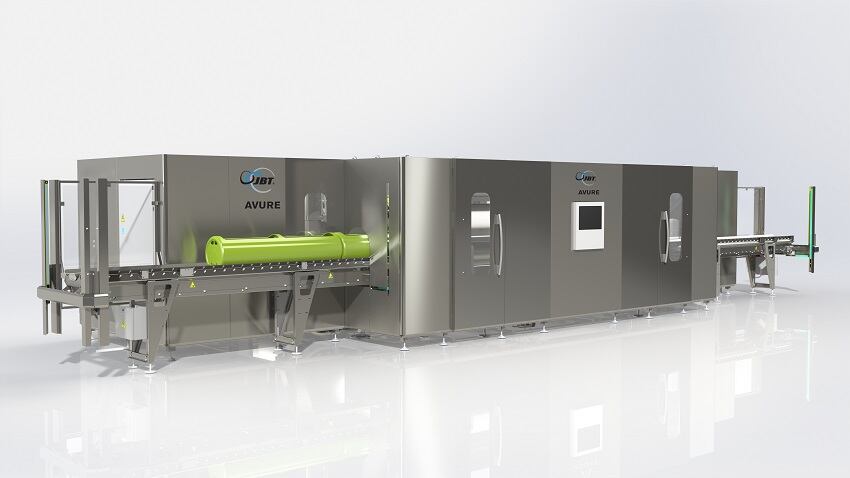HPP was invented in France in 1895 and transitioned from the lab to the production floor approximately 20 years ago, according to Avure Technologies, who

helped make the technology commercially available in the mid-1990s. The process uses ultra-high pressure purified water subjecting food and beverage products to 87,000 lbs. of pressure per square inch, killing off bacteria including Listeria, E. coli, and Salmonella.
HPP is currently a $12bn industry and is expected to double in value by 2022, according to Markets and Markets.
The use of HPP has become common in the juice category as well as dairy-based products such as yogurt, cheese, and salad dressings.
A future for HPP milk?
The rapid growth of HPP dairy products has also led Avure to seek FDA approval for un-pasteurized HPP milk to be sold in the US and Canada.

“(With HPP) we can inoculate all the strains that we know are a problem with milk,” Errol Raghubeer, Ph.D, SVP of HPP Science & Technology for Avure, told DairyReporter.
Due to current FDA regulations, it is illegal to sell completely raw milk in the US and Canada because a vat of milk must be heated for at least 30 minutes at 145°F (63°C) or between 161°F and 212°F (72°C -100°C) for continuous flow pasteurization, the latter of which lasts between 0.01 seconds and 15 seconds.
Raghubeer has been through the FDA validation process before with other applications like cold-pressed juice, but anticipates the approval of HPP milk in the market will be more of a challenge.
“The challenge is working with the government to get it validated,” he said.
“With milk, there are so many different organizations and regulatory bodies that govern it and you have to work through all of them.”
Raghubeer said his team has finished the first phase of the research process to gain FDA approval, but believes it will take at least another two years before HPP milk becomes available to consumers because of the multiple lab tests and studies required.
“We want to make sure it’s safe before getting to the market place,” he said.
There has been some progress in Canada with a patent filed by Made by Cow, a dairy that launched an un-pasteurized HPP milk available at retail locations for $5 per 750ml bottle.
Niche product
If HPP milk does become available in the North American market, consumers may have to go through a taste adjustment as its flavor will be much different than pasteurized milk, according to Raghubeer.
“It tastes tremendously different,” he said. “We all grew up with pasteurized milk so that’s what we’re accustomed to.”
However, Raghubeer believes that a younger demographic of consumers will drive growth and eventually there will be a “happy medium” for price for the future HPP milk category.
“I don’t think that HPP will ever replace heat pasteurized milk because of its sheer volume,” he said. “It’s going to be more of a niche product.”
While Avure continues to work to gain FDA approval for HPP milk, it has also been tapping the knowledge of large dairy companies who are familiar and close to the industry.
“I think there’s tremendous potential to use HPP to make a better product,” Raghubeer said. “HPP will become one of the mainstream organic processes.”
